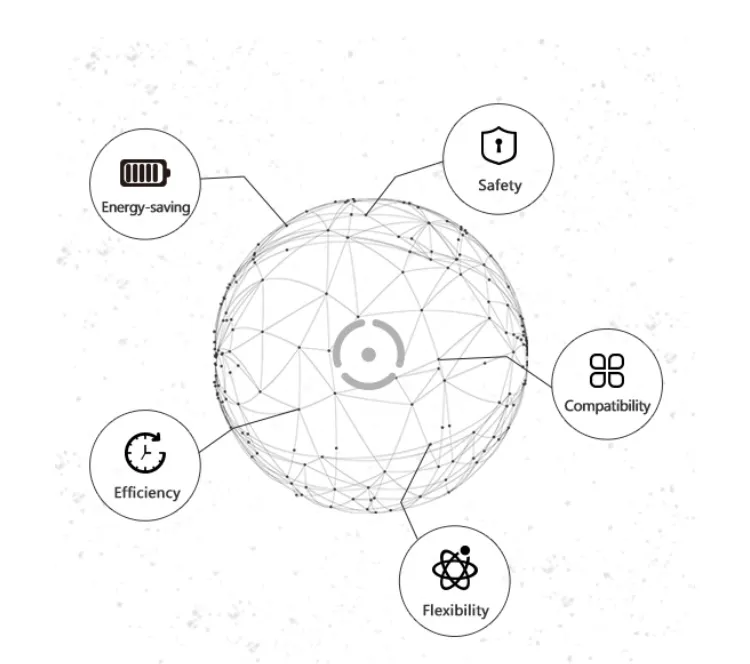
Blockchain is one of the fast-rising trends in our era of modern technology. Beyond doubts, it has drawn attention from across the globe and the overarching adoption of cryptocurrencies clarifies that blockchain technology has come to stay.
Our current world is information-centric and anyone can safely suggest that we're in the Information Age. Blockchain technology beautifies our current world of information but quite unfortunately, blockchain has been facing several problems ranging from security issues to scalability concerns. Across the cyberspace, there are overwhelming amounts of information estimated in terabytes –a much greater advancement from megabytes. Day by day, the need for data storage increases and it’s been predicted that this will be further intensified by the dominant influence of AI and IoT (Internet of Things).
Companies in both private and public sectors collect massive volumes of important data. According to an estimate released by IDC, the amount of global data will reach 163 zettabytes by 2025.
Over the years, problem of data storage has remained one of the major shortcomings of blockchain technology. Many blockchain users (most especially the government and big companies) can reckon that there is always the need to store massive amounts of data. Primarily, popular blockchain networks (such as Ethereum) are not meant for management or storage of data. If you're using them in this manner, you'll be required to provide much space. More unfortunately, the procedure is time-consuming.
Blockchain technology uses decentralized applications which help in sharing huge amounts of data. Unfortunately, this necessitates large storage and management of data. In other words, there is an ever-increasing need to store large volumes of data but this attracts large cost, making it awkward for many users to store important data on blockchains.
Past Security Threats to Data Storage
Cyber crimes are rising at an alarming rate and this poses severe threats to the massive volumes of vital data generated by governments, companies, individuals and organizations.
Nowadays, many companies and organizations adopt cloud-based and single systems for storing enormous volumes of data but the downside to this is that, such data ultimately becomes vulnerable to hacks. In cases of power outage and certain other disasters, the use of centralized storage systems has left much to be desired and thus, exposed vital company data to hackers.
Hackers increasingly pry into companies’ data and statistics show that cyber attacks have been carried out on digital currencies. There are a significant number of companies operating blockchain and digital currencies but unfortunately, reports claim that some of these companies have suffered cyber attacks. Among past victims of cyber attacks are Bitfinex and DAO. As a result of cyber attack in August 2016, Bitfinex, a digital currency exchange, encountered a massive loss of approximately $65 million. DAO, a capital fund which accepted investments from users of Ether, lost over $50 million (from a capital exceeding $150 million) to cyber attack in June 2016.
Seele's Approach to Solving the Problem of Blockchain Storage

Many users claim storage and scalability constitute blockchain's major challenges. Scalability, on one hand is quite difficult to achieve while storage, on the other hand, is rather demanding and expensive. Security could be guaranteed for data stored on blockchain but many users are still discouraged to store huge amounts of data due to the relative high cost. As stated by the CRO of Fluence (a blockchain database company), storing data on blockchain attracts huge cost and as a result, solutions are adopting the concept of off-chain data storage. Then they distribute the data to blockchain at fixed intervals.
Seele seeks to provide a decentralized storage system and keep data off chain. This way, people will find it convenient to search any important data when necessary. Also, Seele proposes to solve the problems associated with data computation and open data sharing. The traditional method for computing data has left much to be desired. Not only has it failed to produce accurate results in the aspect of calculation, it has also failed to guarantee maximum security for data.
Computing needs are ever-increasing and blockchain networks, such as Bitcoin, demand huge magnitudes of computing power. As a move to solve storage problems and meet huge computing needs, Seele presents an innovation that operates across blockchain and smart contracts to combine computational resources and off-chain storage. Seele attempts to eliminate the problem of blockchain storage through the concept of internet storage. Also, Seele utilizes SC in creating privacy and trustworthy exchange for off-chain data. By way of internet computing, Seele introduces an innovation –precisely a distributed cloud computing system that reduces the operating costs of blockchain computing.
From the information above, we can conclude that Seele is a project that could provide the best alternative to storing massive amounts of data on blockchain networks. Oftentimes, businesses and organizations generate lots of information which needs to be stored in a decentralized, secure and reliable system at relatively low costs, hence the need to embrace Seele.
Questions or enquiries regarding seele are welcomed from our esteemed readers.
Be sure to visit the following links listed below for more information on Seele.
SOCIAL LINKS
TELEGRAM
ADDITIONAL LINKS